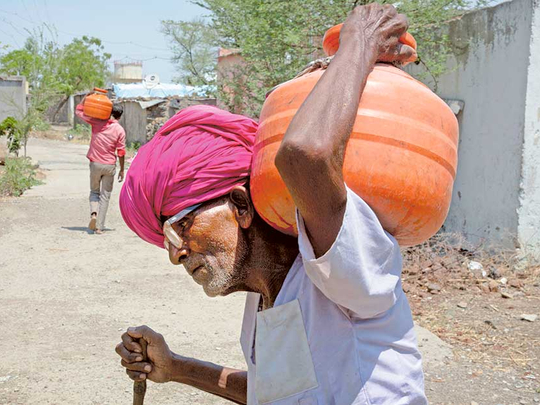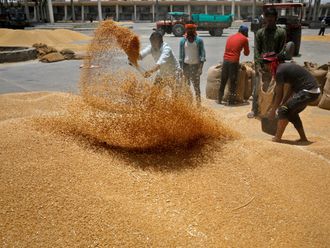
Mumbai: A fact-finding mission in Maharashtra’s Marathwada region, which is reeling under severe drought, has revealed that the state government’s spending on food, water and health is woefully inadequate despite bombastic claims.
The situation is so appalling and tragic that rural folks are migrating to the closest towns and cities looking for daily jobs to sustain their families.
Despite the Supreme Court directing the Centre and drought-hit states to ensure that those affected were provided free grain as per the Food Security Act, “we found that drought management in Maharashtra is restricted to water and shifting of IPL matches,” said Mukta Shrivastav of Jaganyachya Hakkach Andolan, a joint platform of nongovernment organisations, trade unions and groups fighting for right to life and livelihood.
After visiting a select number of villages, public offices and hospitals in Beed, Latur, Solapur and Osmanabad, the fact-finding group was taken aback by the misery of the people. The government’s focus was only on provision of water, but that too was anything but adequate.
To highlight the difficulties on the ground level, a concerned villager, Ranjit Acharya, from Latur told journalists at a press conference what was going on. “A medical officer, B.K. Devangare, in Shirur Anantpal, Latur district, in a Primary Health Centre (PHC), has to deal with 80-90 patients per day apart from dealing with at least one delivery daily. Yet, there was no provision of drinking water for the last four months and finally, the authorities sanctioned one tanker a week.” Other similar centres in the area are also witnessing water and medicine scarcity. Imagine the hygiene levels at these centres, he said. Even paediatric syrup is unavailable in the Shirsala PHC. The focus on food security, employment guarantee, health care, nutrition for children and pregnant mothers and child care centres are missing.
The apex court had also chastised state governments, saying one member of a family in drought-hit areas should be given a minimum of 150 days of employment under the Mahatma Gandhi National Rural Employment Guarantee Act. Yet, 500 people who registered to the programme from Aankulga Sayyad village, Latur, are yet to receive work. And this is the case in several villages visited by the team. The job of tilling the ground for irrigation and road works should have gone to the jobless and landless labourers under the employment guarantee scheme, but has been taken over by machines, says Baliram Deskhmukh of Latur.
Team member Ulka Mahajan says, “The Food Security Act is being implemented in an half-hearted manner. Extremely poor families are entitled to 35kg food grain supply per family per month and poor families are entitled to 5kg per person per month.” However, it was found that 110 families in Hippalgaon village, Latur, did not receive food grains through the Public Distribution System in the past four months. The worst hit is the Dalit community from Chinchpur Budruk village, Osmanabad, which sometimes receives 5kg per family while others get 15kg.
Even the midday meal scheme, which the apex court said should be implemented even during summer vacations, is absent everywhere. The order that eggs and milk should be part of a child’s meal is something not even given a thought, the team said.
What is unfortunate is that in the Parali Vaijnath block of Beed district, the constituency of Women and Child Development Minister, Pankaja Munde, Anganwadi (child care centres) workers have not been paid for the last four months. This is the situation in Latur, Solapur and Osmanabad, too.











